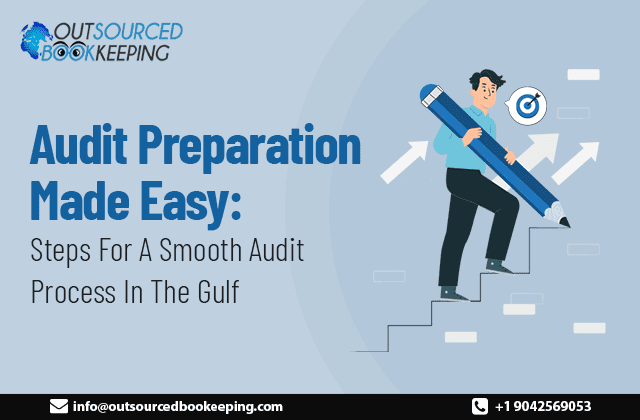Auditing is like a never-ending game of clues. The culprit stays hidden till the end! Despite being the backbone of a business’s success, audit preparation can be a daunting and time-consuming process for organizations and individuals regardless of previous experiences.
However, with proper audit preparation, planning, and implementing the right strategy, businesses can breeze through auditing fast and smoothly and even use it to improve the business. Scroll down to find some of the best industry practices to help businesses have a seamless auditing experience, especially those established in the Gulf!

The Importance of Auditing
The audit process is crucial in upholding trust and transparency within financial markets. It safeguards against companies misrepresenting their financial performance and records, ensuring they accurately represent their profitability and success.
Audits ensure the creation of financial statements that align with accounting standards, providing vital information for decision-makers such as creditors, investors, and other stakeholders. On the other hand, if the information in audits is unreliable, it can erode stakeholders’ confidence in engaging with companies, underscoring the critical role of auditing in maintaining trust.
Financial accuracy during audits reflects a business’s ethics, honesty, and accountability, building trust among potential stakeholders.
Understanding the Audit Process
Before diving into the details of conducting audits smoothly, it is essential to understand the procedure. Familiarizing yourself with the different audit types is the first step in speeding up the auditing process.
Types of Audits
- Financial Audits: examine a company’s financial transactions, records, and statements and ensure that they comply with accounting rules, are accurate, and disclose relevant financial information.
- Compliance Audits: work with predetermined laws, regulations, or industry standards and examine a company’s compliance with legal mandates, contractual obligations, environmental and safety constraints, and internal rules.
- Operational Audits: examine the efficiency, effectiveness, and risk management of an organization’s internal processes, controls, and procedures. They are constantly looking for ways to enhance the procedures, lower expenses, and reduce operational dangers.
- Information System Audits: specialize in evaluating a company’s data security protocols, IT architecture, and controls. Doing this is a testament to the guarantee of accuracy, privacy, and information accessibility.
The Key Ways That Make an Audit Preparation Function Smoothly in the Gulf
- Auditors Don’t Just Solve, Rather Prevent Them
Hiring audit preparation services is the best option to ensure the accuracy and integrity of financial information. While it may seem contrary to intuitive expectations, if hired, they can provide valuable insights into an organization’s financial practices that can help improve the audit process. Moreover, hiring them can also demonstrate a company’s commitment to accountability and transparency.
-
Perform a Simulated Audit
Begin with a mock audit before executing the actual audit. This will surface potential weaknesses or issues in the financial practices that you can address while performing the actual audit preparation. Moreover, it can also help prepare the team for a better actual audit, relieving anxiety and stress while performing it.
-
Create a Backup Strategy
No matter how perfect the audit process goes, there is some chance that can make it go wrong, no matter how well-prepared the team is. Therefore, to avoid such an embarrassing situation, having a backup plan or a contingency strategy with briefly outlined steps can help to cover any potential negative impacts quickly.
-
Perform an Internal Audit
Consider conducting an internal audit in addition to an external one to help identify potential issues and address them effectively. Moreover, it can also help demonstrate the organization’s commitment to financial accountability and transparency.
-
Ensure Sufficient Instruction
Ensure that the team performing the audits is trained with the organization’s financial policies and practices to avoid misunderstanding during the audit process. Moreover, providing ample training can also enhance the organization’s organization’s financial literacy,, resulting in improved future financial practices.
-
Execute a Risk Appraisal
Conduct this to identify potential areas of vulnerability or risks so that more focus is placed during the preparation period on addressing these issues. Additionally, conducting the risk assessment reflects the organization’s commitment to mitigate any negative impacts and risk management.
-
Assess Conventional Practices
Ensure that the people conducting the audits are familiar with the best practices and industry standards to ensure that the organization’s financial practices align with them while auditing. Moreover, reviewing industry standards can also locate areas requiring improvements so that they can be improved with enhanced financial practices in the future.
Conclusion
A robust audit can showcase an organization’s financial practices’ strengths. Therefore, begin early by organizing the necessary documents, reviewing the financial records, being transparent, and contacting the auditor so that you can enjoy a successful and smooth auditing journey ahead! Consider Outsourced Bookkeeping as your trusted partner to have a seamless, accurate, and reliable auditing experience ahead.








